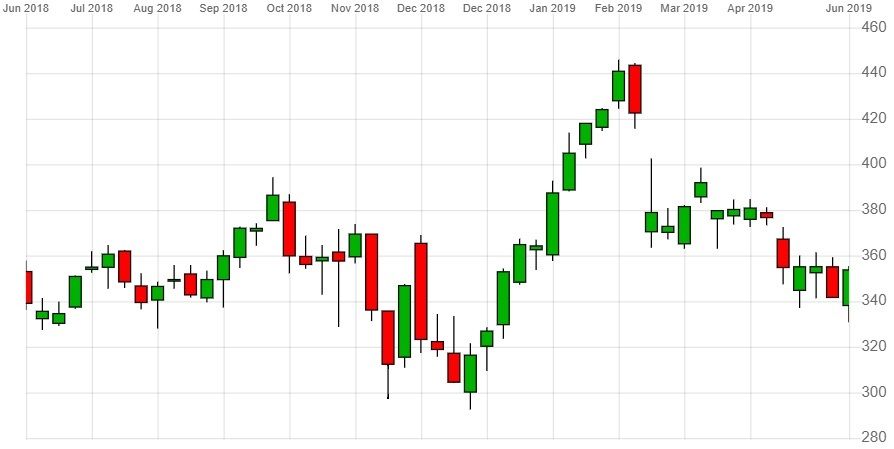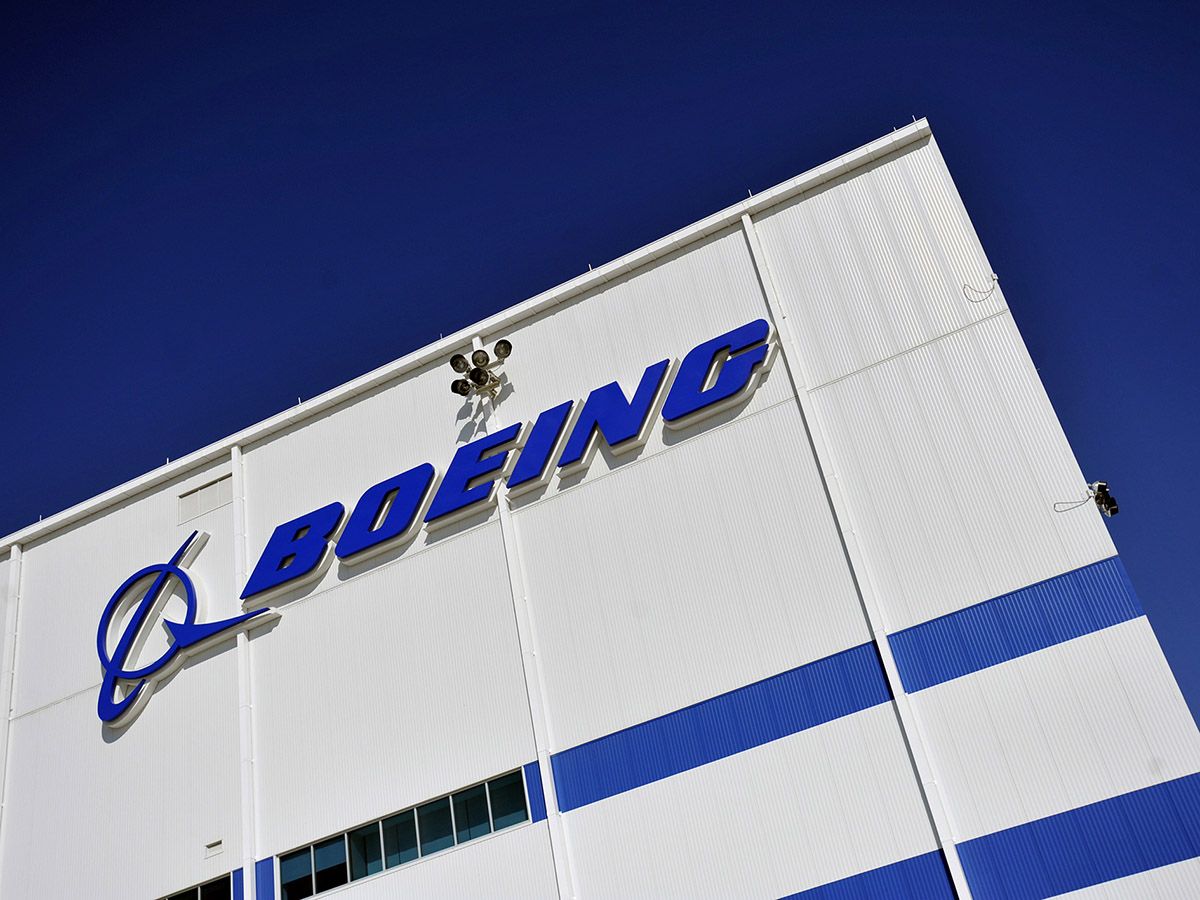Three months on from the Ethiopian Airlines disaster, the problems engulfing Boeing [BA] have spread from the flawed 737 MAX aircraft to the company’s entire commercial aviation business, and the company's share price has suffered as a result.
The aircraft maker’s executives are waiting for the US Federal Aviation Authority to greenlight a software fix for MCAS, the auto-piloting feature whose faulty activation played a part in both March’s Ethiopian tragedy and the Lion Air crash five months earlier. Meanwhile, production issues and the emergence of further manufacturing flaws have plagued other models in the company’s portfolio.
Boeing’s share price plummeted 11% in the first two trading days after the Ethiopian crash, and has since fallen another 5.7% to $353.8 as of 10 June. But for the past 30 days, the share price has somewhat steadied, refusing to plummet even after Boeing admitted to finding more design flaws in its 737 models this week. Does this mean the stock has absorbed as much negative news as it can, or could it get worse for Boeing’s shareholders?
Financial impact
Chief executive Dennis Muilenburg is still to provide an update on costs arising from problems with the MAX beyond the $1bn headline figure he gave over a month ago, and has refused to say when production rates for the 737 range, which were dialled down in to 42 aircraft per month in April, will ramp up again.
In a CNBC interview on 9 April, Muilenburg flat-out admitted that Boeing has received no new orders for the MAX since the Ethiopian tragedy. In spite of this, at a UBS event last week, he stated he remains committed to eventually ramping up production to 57 a month, as has long been the plan, presenting the production slowdown as an opportunity to fine-tune supply chains before a return to full swing.
| Market cap | £193.55bn |
| PE ratio (TTM) | 19.69 |
| EPS (TTM) | 17.47 |
| Quarterly Revenue Growth (YoY) | -2.00% |
Boeing share price vitals, Yahoo finance, 12 June 2019
Adding to production woes was news from the FAA last week that Boeing had identified more design flaws across the 737 family, which could require wing parts to be replaced. Additionally, engine testing issues with the upcoming 777X twin-aisle jets, which are powered by General Electric turbines, could make it even trickier to meet 2020 targets.
Airlines fallout
The grounding of the MAX has forced airlines to axe swathes of scheduled flights. American Airlines on the weekend said cancellations for its MAX-serviced routes would extend to 3 September – an indirect indication of how long the crisis may last.
Over the past month, airlines in China, the Middle East and the US have all formally requested or expressed the intention to request compensation from Boeing for lost business. Ryanair has already secured a multi-million-euro pay-out, the Irish Independent recently reported. The MAX disaster has now begun featuring – with infamy – in analysts’ notes on Boeing customers. Southwest Airlines was “let down by its key partner”, wrote analysts at Evercore ISI last week, as they downgraded the outlook for the US carrier.
“Let down by its key partner” - Evercore ISI analysts on Boeing's impact on Southwest Airlines
But despite risk that passengers may desert MAX operators, airlines have diverged in their approach to the situation: while Azerbaijani flag carrier AZAL cancelled a $1bn contract for 10 737 MAX aircraft, the chief executive at Poland’s LOT, which already has a (grounded) fleet of five MAXs, said he does not see any reason not to take further delivery.
“A timing event”
Even as the MAX affair evolves from an episode of bad engineering to a scrutiny of Boeing’s overall corporate culture, the stock may still give reason to be bullish. At a Bernstein event in May, Muilenburg touted the opportunities offered by a “significant wide-body replacement wave coming early in the next decade,” while a UBS survey last week gave airline executives reason to think over 90% of flyers will eventually board the MAX again.
It may take some time for these developments to translate to an uplift in share price, though. Boeing is projected to report earnings of $1.81 per share at its next earnings release – nearly a 50% drop from last year.
~50%
Predicted YoY fall in earnings for the upcoming quarter
Meanwhile, its forward P/E ratio of 24.20 looks steep compared to the industry average of 17.03. Its PEG ratio is on the high end, too, currently at 2.19 compared to the current sector average of 1.84. Considering that Boeing’s share price has already fallen by almost 20% since its year-to-date high of $440.62 at the beginning of March, evidence of overvaluation is not a good sign for investors.
Despite the numbers, some are confident that holding on to Boeing could pay off. Mark Tepper, chief executive at Strategic Wealth Partner and a Boeing shareholder, told CNBC on Thursday that “cash flow burn right now is just a timing event”. Once the MAX gets back into the air, he added, Boeing will “become a cash cow again”.
Continue reading for FREE
- Includes free newsletter updates, unsubscribe anytime. Privacy policy





